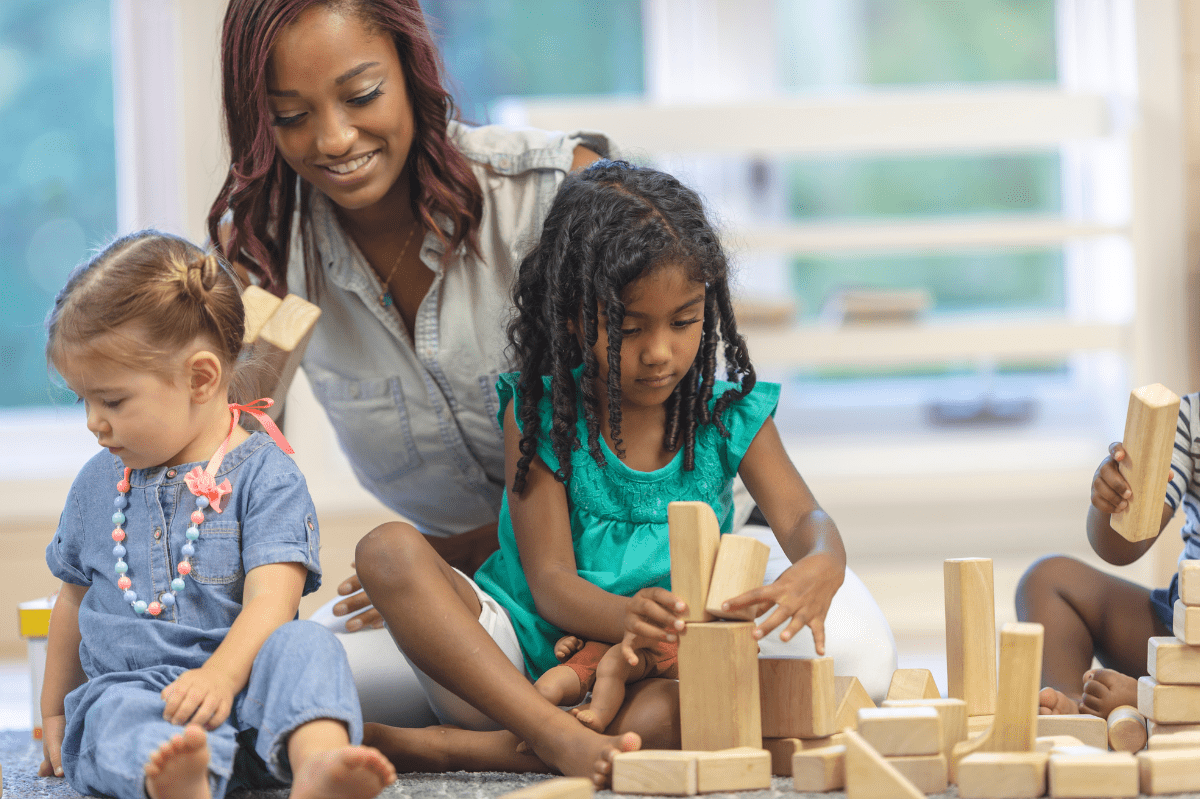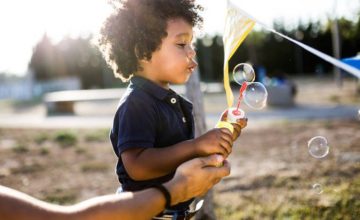A reflection piece by Vanessa Macias, MA, Child360
Child360, a nonprofit with the mission that every child succeeds in school and life, responded to the racial injustices and social tension of the summer of 2020 by focusing on those who teach children during their most impressionable years. Early childhood education professionals that nurture infants and toddlers have the unique opportunity to create a safe place where all children are valued with cultural humility, setting a precedent for how these children will view themselves and others. Child360’s approach is two-fold, giving children a healthy cultural lens and also helping these professionals heal from their own racial trauma.
Equity Starts Early
The pandemic brought a devastating strain to families. With more than 20 years of professional experience working with communities of color, and growing up in a BIPOC (Black, Indigenous, and People of Color) household, I knew that these families were hit even harder. Come summer, the deaths and injustices toward Black communities became insurmountable, between George Floyd, Breonna Taylor, and many others. It felt like we were at an irreparable bottom. I was compelled to create a safe space for early learning programs—to authentically listen and learn, heal from racial trauma, and build equity and understanding. Child360 is rooted in diversity, equity, and inclusion, which is what drew me to the organization 9 years ago; but what is also great about the organization is we operate out of genuine need, and we were being called to expand our services to respond the early learning community during this emergent need.
I began by reaching out to Child360’s internal Diversity, Equity, and Inclusion task force to develop a series of “café”-style training sessions for early childhood education professionals. Cafés naturally encourage a safe space due to their intimacy, frequency, and familiarity, which make them the perfect format to foster critical dialogue about educational injustices and how to use these learnings as a springboard to build equity within early childhood education programs. As a pilot, we administered these cafés to our internal team of 180 people, which were divided into six small groups comprised of various functions and roles across the organization. Members remained with the same cohort throughout all six sessions to ensure safety, foster authentic support, and yield a genuine baseline. We explored and discussed current events, and delved into topics including implicit bias, identity, representation, exclusionary discipline practices, privilege, microaggressions, intersectionality, trauma, adverse childhood experiences, cultural humility, gender identities, educator well-being, and ideologies.
While leading these internal cafés, my co-developers and I remained in-tune to create content that dovetailed with the evolving times. We attended webinars, held brainstorming sessions, collaborated across disciplines, and cross-trained multiple facilitators within the organization. We began to see the appreciation of these cafés from our staff, and an enriched era of company health that was critical due to our physical separation from the pandemic. After our internal success, we were ready to launch this offering for the early childhood education community, characterized by what our world needs most: Educational equity.
Educational Equity Café Series
The café-style series spans six sessions, each 2 hours long, where early childhood education programs, school districts, and others engage in facilitator-led conversations in a safe space. Topics focus on the aforementioned broad strokes and are fluid to take deeper dives based on current events and the chemistry of the group. The most important thread is helping attendees understand the link to early childhood. Facilitators challenge participants to examine the importance of critical analysis about social justice and the early educator’s role to create change. We discuss interpersonal bias and how to create culturally relevant and equitable practices in the classroom, which ultimately transforms the early childhood education system into one that nurtures the whole child.
By winter of 2020–2021, three organizations had already partnered with us, and we trained 110 early childhood education professionals during a time when many were eager to better understand race, issues of inequity, and their role to play. By the spring of 2021, we had trained more than 100 more early childhood education professionals. Participants walked away with real-life strategies, characterized by self-awareness, humility, and a distinct call to action. Some shared that the series helped them see the bigger picture of the impact of family—realizing that what a family is going through may affect the children in their program; others were awakened to their own biases, stating that they’d unknowingly made assumptions about children’s capabilities which inadvertently affected their approach in the classroom.
All adults have biases, and they all have ways they can improve so they can be a part of the solution to creating loving environments for children, catapulting thriving families, and laying the foundation to just communities.
How Can You Implement an Equity-Based Birth-to-3 Classroom Right Now?
1. When staging your environment, provide mirrors in common areas so children can inspect their own faces and gain an appreciation of themselves and others. Children are aware of race as early as infancy. Three-month old babies demonstrate a significant preference for faces from their own ethnic group! Early exposure to different ethnicities makes a difference. Research shows that racial bias in adulthood may arise from lack of exposure to other-race individuals in infancy.
2. Create an inclusive classroom by using language such as “ours” instead of “mine” when talking about the environment: “our home” or “our classroom.” Examine how and whether negative stereotypes and beliefs perpetuated in the larger society are reflected in children’s behaviors and tendencies. “We” language sets the foundation for how environments should feel: welcoming and inclusive. You will begin to notice that this type of environment helps young children feel seen, heard, felt, regarded, and known.
3. Build strong relationships with your families. Promote children’s home culture in your learning environment by having representation in books, toys, and incorporating home culture into the culture of their classroom. This helps construct positive racial and cultural identity and will strengthen open, trusting relationships with your families.
4. Site business owners and leadership: Build a diverse workforce, from teachers to administration. This empowers young children to see faces like them in teaching and leadership roles. When children can relate to the traits of their role models, they unlock the truth that they can be whoever they want to be. Representation matters.
5. Remember what attracted you to the early childhood education field, and take a “pause” moment each day to acknowledge your personal mission statement. This practice is an essential reset button. As educators, your days are hustle-bustle and you wear many hats. When you enter the classroom each day, pick a focal-point or routine moment, like turning on the lights, to serve as a pause moment where you quietly reflect your personal “why.” This mission statement could be something like: “Create a safe, inclusive, and liberating space for all children, no matter the chaos in the world. My focus is on loving these children and building an inclusive space for them.” This internal pause and reminder helps you to start fresh, acknowledge any kind of bias you are bringing in that day, and letting it go.
Final Thoughts
All children need early childhood educators like you who are poised to meet children in their place of need; to feel seen and understood is the foundation for equitable learning and the lens these children will put on for life. When Child360 supports early childhood educators with professional development like this, it is leveling the playing field for every child and supporting educators. This is the healthy environment all children deserve to learn, grow, and thrive in; and the norm all educators should be equipped with. If you or a program you know would like to learn more on how to foster an inclusive classroom driven by equity, diversity, and representation, please email services@child360.org or call 213.416.1819.
Author Bio
Vanessa Macias, M.A., has more than 20 years of educational equity, leadership, and advocacy experience within the public and nonprofit education sector and holds a masters in social and cultural analysis of education. As Child360’s director of assessment and professional development, she oversees a team of quality services supervisors, workforce development staff, and development leaders in the early childhood education industry. Together, they develop, direct, and implement innovative professional development, workforce development, and technical assistance programs.




